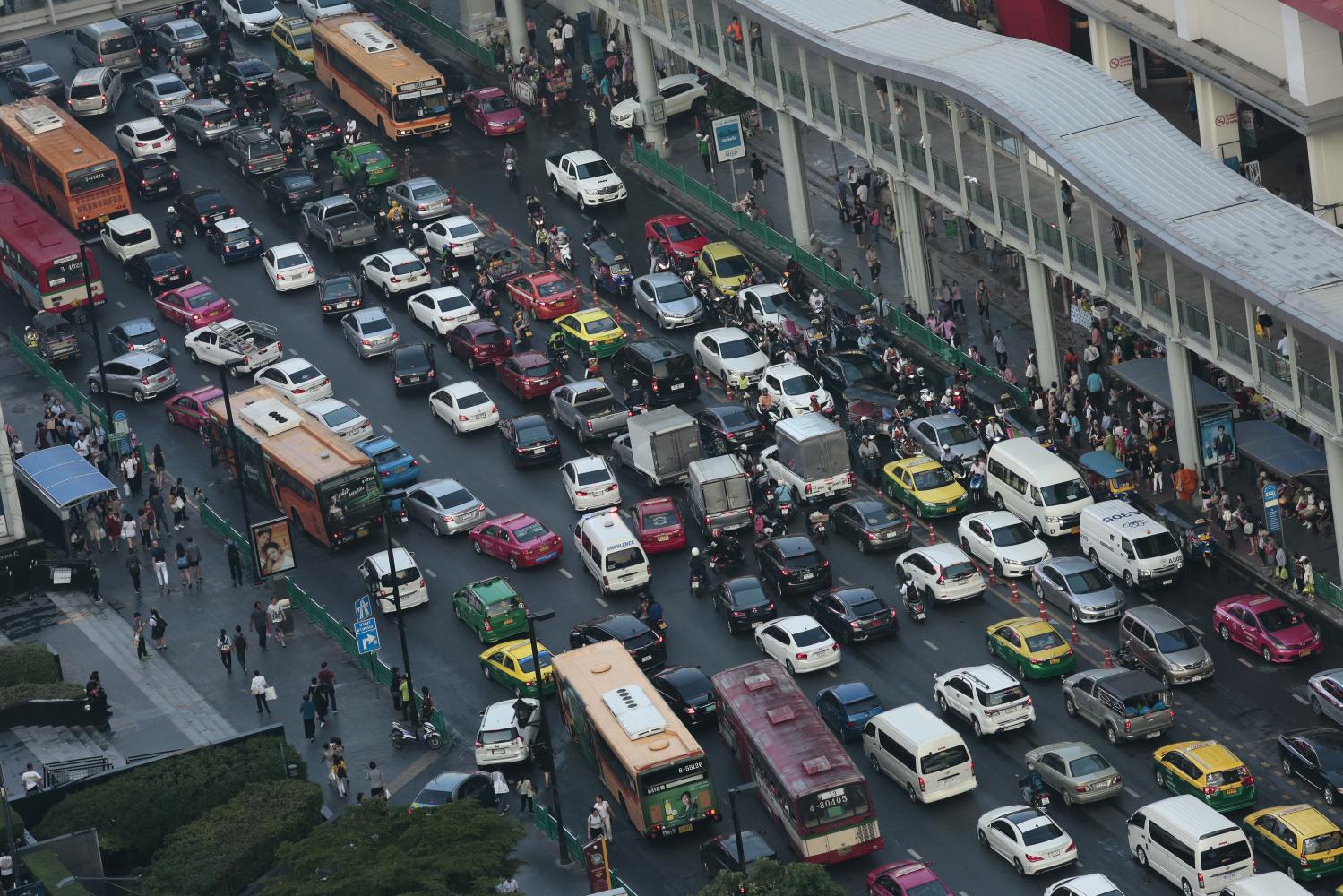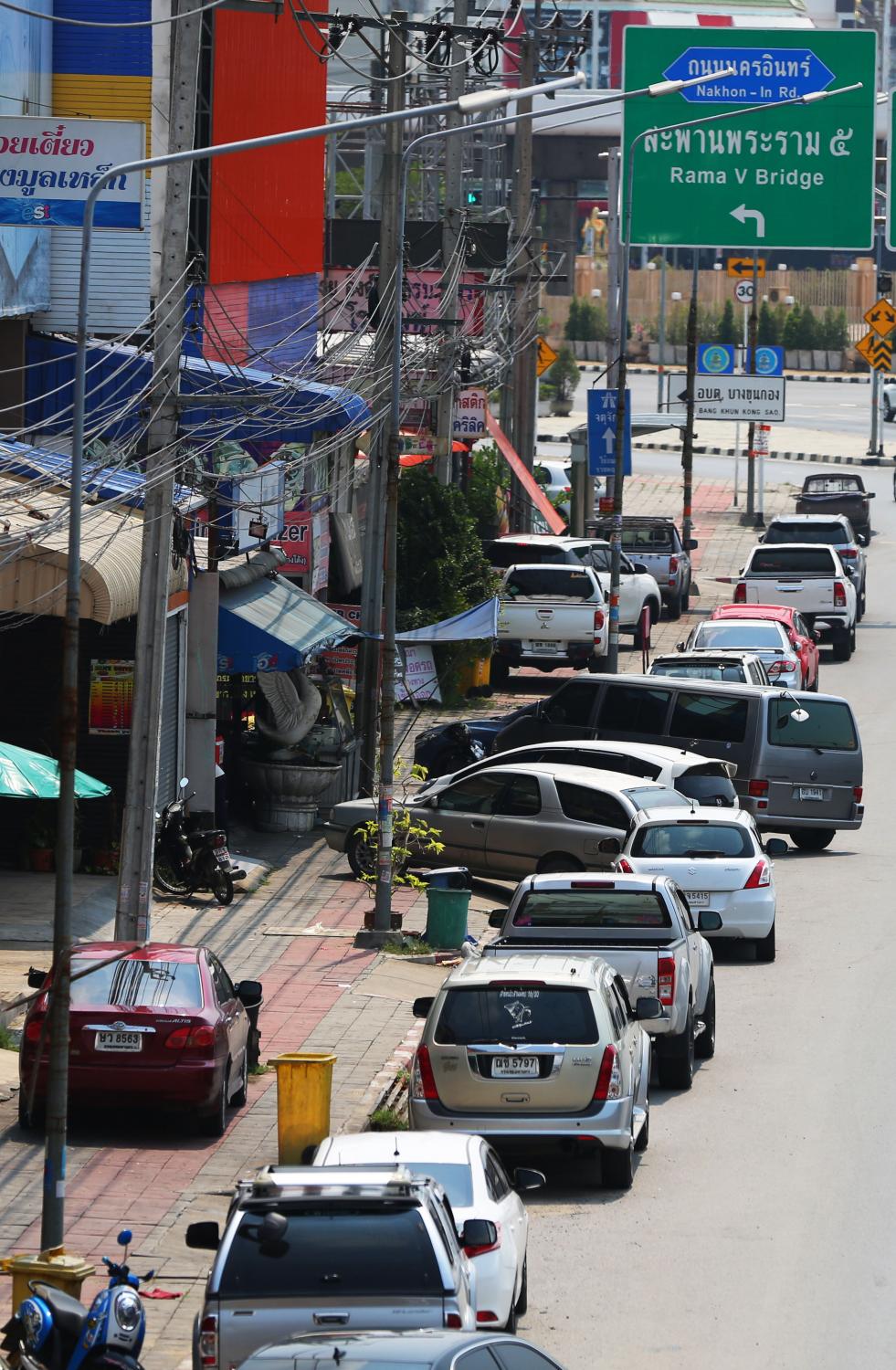
People in Bangkok have long debated about how to address the city's notorious traffic problems.
Just prior to the pandemic, Bangkok ranked 8th in TomTom's traffic ranking of the most congested cities globally. As part of that, it was ranked 4th in Asian cities.
Not only are road users affected by crawling traffic and long hours trapped in cars, but pedestrians have to breathe polluted air from vehicles while walking on sidewalks that are more like afterthoughts -- if they are available.
As part of the public discussion, debates have asked how acceptable is it when street space is heavily taken up by vehicles and is it possible that the city's limited space be better shared?
In our latest academic research programme, we have tackled these questions and investigated Bangkok's traffic situation closely. And what we found is an alarming situation.
While the new subway MRT system gains popularity, private car transport and motorcycling have developed more rapidly over the past decade with cars being used five times more frequently. This has contributed to the external costs of road traffic derived from congestion, air and noise pollution, accidents, and global warming, which were equal to 7-10.8% of Southeast Asia's GDP in 2017.
This cost is deemed "external" because road users only pay for fuel and time wasted. External costs take into consideration the negative effects on society. The reality is that each vehicle adds to the city's congestion, adding more pollution and taking up more space.
One solution to unjam traffic is "congestion charging", which policymakers in Thailand and more broadly in the Southeast Asian region have considered for 40 years.
But it's only been cities such as Singapore, or further afield in London, and Stockholm, that have employed congestion charges to manage traffic volumes.
The outcome has been encouraging with such cities experiencing decreases in on-road vehicles, shortened travel time, reduced pollution, and improved use of open public spaces.
But admittedly, congestion charging is politically challenging.
London's experience shows that it only works when three conditions are met.
First is that alternative transport modes must be available. Second, is revenue from collected charges must be used to bolster public transport, and third, is that all stakeholders from local businesses to residents are involved in the discussion on how the charging scheme works.
While congestion charging is possible in Bangkok, it's also a solution requiring substantial political capital. Indeed, smaller and practical approaches are equally important and relevant. A key approach is to adequately manage on-street parking.
The current free or cheap public on-street parking, even on the hustle-bustle of Silom road in inner Bangkok, results in endless cruising for parking and ensuing congestion. To address this parking fees can be implemented and used to compensate for absent congestion charging or used to adjust the unfairness on the use of public space by private vehicles. Parking fees can also help lessen the cruising for curbside parking spaces.
Free or underpriced on-street parking is a factor that drains the quality of life of the city's residents by taking up public space. Recurrent analysis of parking in cities worldwide finds that street space is largely distributed unfairly in favour of vehicles with pedestrians and cyclists losing out.

Moreover, cars are standing still for most of the day and are taking up parking spaces that could be turned into spaces for children and seniors and into lanes for disabled drivers, buses, bikes, loading trucks, sidewalks, and outdoor restaurants.
Pricing for parking is the best way forward to make street space use fair. Parking fees are also relatively easy to implement, are accepted publicly, and can be rolled out district by district.
Our study shows that the pricing of on-street parking must match the pricing of private parking. To eliminate on-street cruising-for-parking in the inner city, parking must cost about 100 baht per hour parking fee. It's a high figure but an increase in open street space for citizens will make it a worthwhile measure. If congestion charging is implemented, parking charges could be lowered.
New research further shows that it matters how revenue -- whether from congestion charging or parking fee -- is redistributed. Putting it into the treasury's coffers is a sure recipe for public outcry.
Instead, such revenue should be directly used for improving street spaces and providing additional high quality means for commuters to reach urban destinations.
A coordinated effect focused on improving bicycle use and methods of "shared mobility" such as carpooling and public transport also make economic sense. Such measures likewise have the ability to improve our physical and mental well-being.
Commuters that still value privacy may choose to use shared mobility to save on both time and travel costs.
These measures can open up Bangkok's gridlock and, along the way, improve air quality and provide more open spaces, while improving the well-being of residents.
Eva Ayaragarnchanakul is a lecturer at the Faculty of Economics, Prince of Songkla University and PhD student at Sustainability Economics of Human Settlements, Technische Universitat Berlin, Germany. Felix Creutzig is group leader at MCC Berlin, scientific coordinator of the Einstein Center Climate Change on Public Policy of Human Settlements and Coordinating Lead Author of the upcoming 6th Assessment Report of the Intergovernmental Panel on Climate Change.







